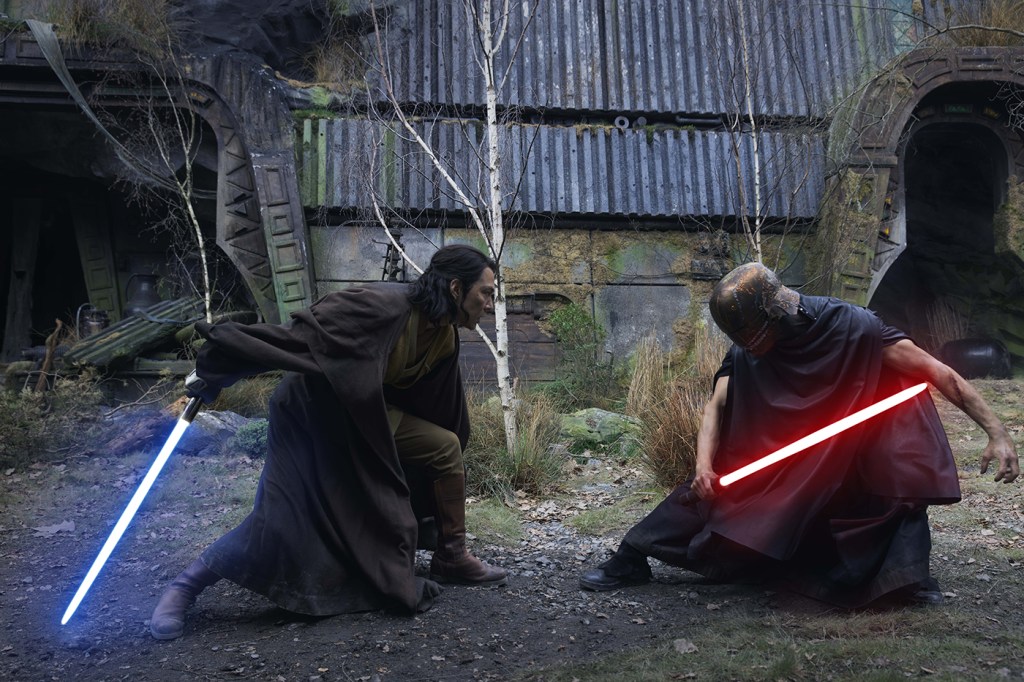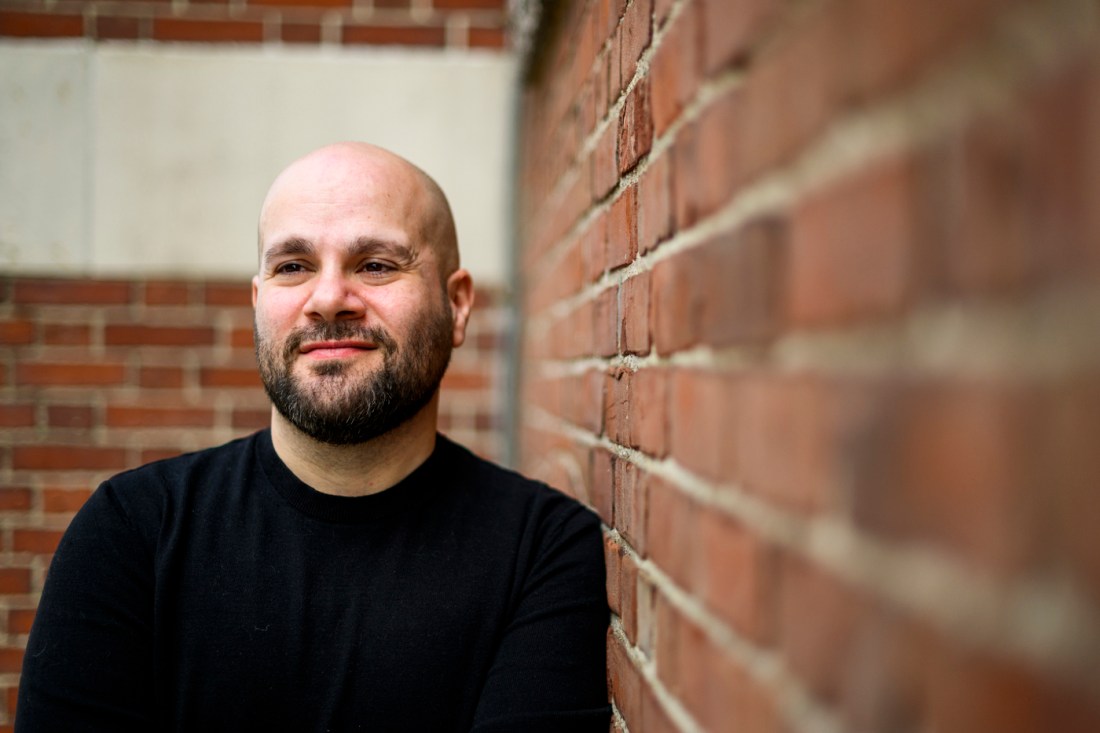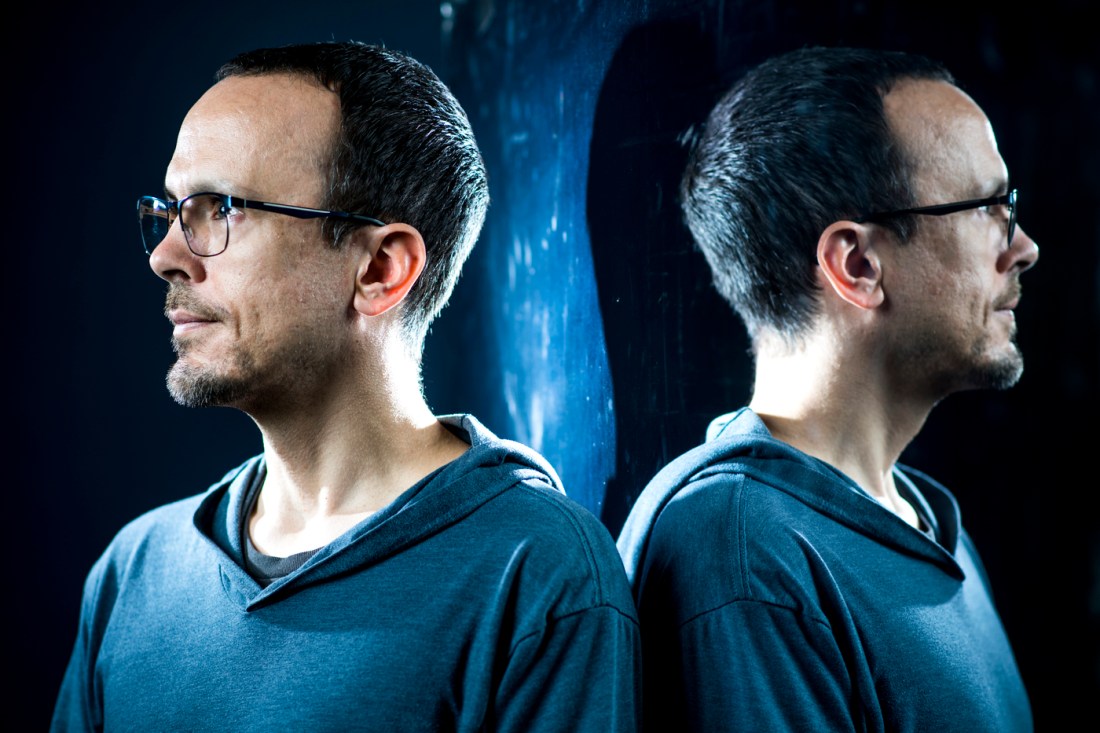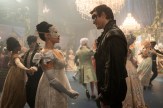Disney canceling Star Wars’ ‘The Acolyte’ sets a dangerous precedent and is bad news for the future of Star Wars and Hollywood, expert says
Disney’s decision to cancel “The Acolyte” after one season reinforces the toxicity in its own fan base and will limit the stories that will be told in the galaxy far, far away, a Northeastern fandom expert says.

Tears were shed in a galaxy far, far away this week, as Disney announced it was canceling its newest Star Wars show, “The Acolyte,” after just one season.
But not everyone was sad about the news. A small but vocal portion of the Star Wars fan base celebrated the end of a Star Wars show that critics and other fans felt was a breath of fresh air for a franchise that is growing long in the tooth.
For anyone familiar with modern fandom, the internet and Star Wars, specifically, it should come as no surprise. Star Wars fans have review-bombed movies and shows that center women and people of color in their favorite franchise. They have harassed actors until they leave social media.
What is new is that Hollywood might be listening to them, says Steve Granelli, an associate teaching professor of communication studies at Northeastern University who specializes in fan culture dynamics.
“There’s a section of the fanbase that is limiting the types of stories that are told and the types of characters that the wider fanbase is going to have access to, and I don’t think that bodes well for the [Star Wars] franchise moving forward,” Granelli says.

Toxic fandom, which exists in almost every major fan base from Taylor Swift to Marvel, is what happens when, for example, a fan’s love of Star Wars becomes less about their connection to the story of Luke Skywalker and more about how integral Star Wars is to their identity, says Joseph Reagle, an associate professor of communication studies at Northeastern who studies online community and culture.
That’s when fandom tips from passion into a sense of ownership and results in fans defining who can and can’t be a fan. Reagle says the internet has only amplified the kind of gatekeeping that exists in some fan communities.
“There’s a sense that ‘These cultural properties are mine. It’s a big part of my identity, and I’m going to control who’s good enough and the access,’” Reagle says. “It can become very, very possessive.”
As Star Wars, Marvel and other pieces of “geekdom,” as Reagle calls it, have entered mainstream culture, it creates even more contentious spaces for gatekeeping. Amplified in online communities that serve as echo chambers, those ideas get even more ingrained. For some fans, the need to maintain ownership over something that they feel is slipping out of their grasp can then boil over into outright racism and misogyny, Reagle says.
In the case of “The Acolyte,” certain toxic fans review-bombed the show, claiming it deviated too far from their sense of what Star Wars is. Unlike previous Star Wars movies and TV shows, “The Acolyte” had very little connection to preexisting characters, taking place during an era long before the events of the films. It also prominently features women and characters of color.

An innocent Instagram post about the “The Acolyte” from the show’s star, Amandla Stenberg, quickly became a hotbed of vitriol, as some fans celebrated the cancellation of the show and lambasted her as an actress and person. She isn’t the first Star Wars actor to experience this. Kelly Marie Tran, who played Rose in “The Last Jedi,” experienced so much online harassment that she ditched social media altogether.
Granelli says “The Acolyte” serves as a warning to the rest of the Star Wars fan base and Hollywood as a whole. The reason for the cancellation doesn’t even matter at this point. In lieu of Disney explicitly stating why it canceled “The Acolyte,” the company has let the most toxic portion of its fan base take credit.
Featured Posts
“I think that there’s going to be more of a victory lap from that group of fans that believes they [canceled] it, and without a competing narrative ostensibly they’re going to be right,” Granelli says.
Commenting on Stenberg’s Instagram post, one person said “the power of real fans got this show caaaaaanelllled [sic].” Another commented, “The power of manyyyyyyyyyy.”
Instead of cracking down on toxicity or issuing public statements of support for the creatives who are targets of harassment, it seems some Hollywood productions are logistically responding to the dangers of toxic fandom. Kaitlyn Dever, who will appear in the second season of HBO’s acclaimed video game adaptation “The Last of Us,” was given extra security on set because of the hateful response fans had to her character in the video game that serves as source material for the show.
Granelli worries about the message that sends not only to other fans but creators who, like “The Acolyte” showrunner Leslye Headland, want to tell new stories in a franchise that resonates with so many people.
“If you are a young talented screenwriter or filmmaker who grew up a huge Star Wars and now you have an original idea that takes place in that world, are you going to want to go to Disney?” Granelli says. “Does that mean we’re going to get boring storytelling?”
It’s not a death knell for Star Wars by any means, but Granelli worries Disney’s treatment of “The Acolyte” could have a cooling effect on what kinds of stories are told in the Star Wars universe and, given Disney’s outsized role in Hollywood, franchise storytelling in general.
“The stories are going to continue, but there are going to be fewer chances taken with those stories, and that’s sad,” Granelli says.











